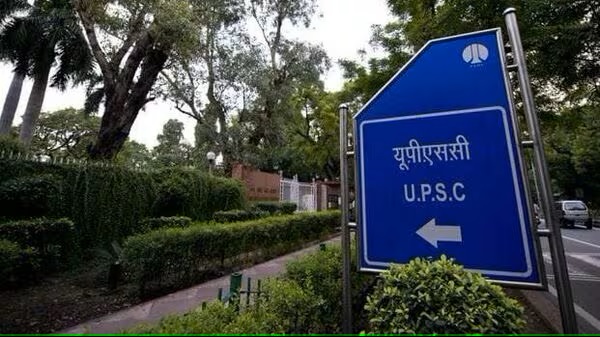[ad_1]
To ensure smooth participation, candidates must adhere to a set of strict rules and guidelines:
Mandatory Documents: Candidates must carry a printed copy of their e-admit card and a valid photo ID, which matches the details on their admit card. Additionally, candidates whose e-admit card images are unclear must bring a passport-sized photo for each session.
Timing: The examination centers will close their gates 30 minutes before the exam starts, i.e., by 8:30 a.m. for the morning session. “The candidates are advised to reach the venue well in time so that their entry inside the examination venue could be ensured smoothly after observing necessary protocol,” explains an FAQ document on the UPSC website. Latecomers will not be allowed to enter.
Restricted Items: UPSC has a strict list of banned items, which includes mobile phones, smartwatches, electronic devices, programmable gadgets, and storage media like pen drives. Candidates are not allowed to bring personal items such as bags or books into the examination halls. The use of electronic devices, even if turned off, is prohibited, and any violation could lead to disqualification or a police complaint. “Any electronic equipment or programmable device or storage media” such as cameras, Bluetooth devices, and other gadgets are not allowed in the exam hall. Additionally, candidates are advised not to bring valuable items as their safety cannot be guaranteed.
Dress Code: While no formal dress code has been issued by the Commission, candidates are advised to wear comfortable clothing that adheres to the norms of the examination center.
Answer Writing Protocol
It is essential for candidates to follow the guidelines for answering questions:
Space Limit: Answers must be confined to the space provided in the Question Cum Answer (QCA) booklet. Exceeding the designated space could result in mark deductions. Aspirants are also advised to cross out any blank spaces in their answer booklets before submitting them to the invigilator.
Marking Strategy: Time management plays a crucial role in the exam. Jatin Verma from JV’s IAS Academy cautions candidates not to overemphasize the first few questions. “Many sincere candidates tend to overemphasize in the first few questions. So try to avoid this mistake, as marks are awarded for every question one attempts,” he explained.
Additionally, Mudit Gupta, a UPSC coach, advises candidates to focus on balancing content. While some answers may require diagrams or flowcharts, candidates should not rely on these techniques excessively. Instead, understanding the essence of each question is key. “If there is a question on India-China relations and a candidate writes that both the countries are friends or enemies and are not in conducive terms, then such a start will not leave an impression on the examiner,” Gupta added.
Tips from Former Aspirants
In a recent interview with Forum IAS, UPSC CSE 2021 AIR 91 Pragya Jat shared her own experience of a common mistake made during the Main exam. “It’s hilarious on my part that I did not know that for Main you can use any colour pens. I thought a candidate had to use a black ball point,” she revealed. Eventually, she switched to using other colors after realizing the flexibility allowed during the exam.
Conclusion
As the UPSC Main Exam begins, aspirants must keep in mind these vital guidelines, avoid common mistakes, and manage their time effectively. By following these steps, they can maximize their chances of success in one of India’s most competitive examinations.
[ad_2]

